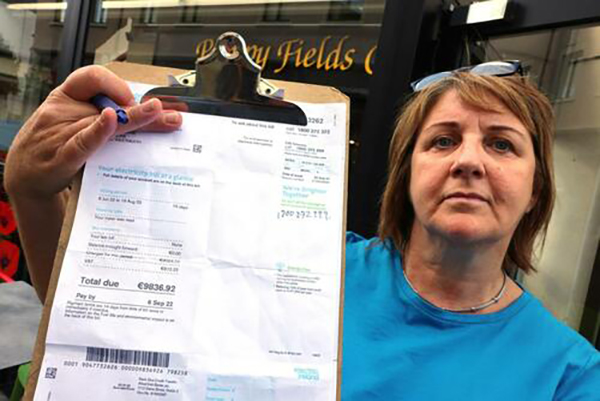Consumer goods giant Unilever raising prices on many popular products due to inflation
07/27/2021 / By Cassie B.

Economists have been warning that the economic crisis caused by the coronavirus pandemic would lead to soaring inflation, and now we are seeing some strong signs that it is setting in and consumers can expect to pay a lot more money for everyday items.
Last week, the consumer goods giant Unilever admitted that inflation is pushing the company to accelerate price increases. They cited higher costs for ingredients, transportation and packaging as being their biggest current challenges. Despite already raising the prices of their goods by 1.6 percent in the second quarter, they now say they will be stepping up price increases even further around the world.
Unilever is known for many popular brands, both within the U.S. and globally. According to the company’s website, 2.5 billion people use their products each day. Some of their best-known brands in the food and refreshment category include Hellmann’s, Knorr, Lipton and Breyers. They are also the company behind beauty and personal care brands such as Dove, Axe, Pond’s, Vaseline and Suave and household product brands like Seventh Generation and Surf.
Unilever said that it could see its full-year profitability drop because of higher costs in news that sent their shares tumbling by 5 percent in early trading. The company’s Chief Financial Officer, Graeme Pitkethly, told reporters: “We are going to have to take a little higher levels of price increase.”
Although Pitkethly believes that his firm’s strong inventory and large scale can help mitigate the price rises to some extent, some costs are simply out of their control and climbing more than expected. In particular, the prices of ingredients such as soybean oil, palm oil and crude oil climbed sharply this quarter and have already impacted Unilever’s profitability. Their underlying operating margin during the first six months of 2021 fell by 1 percentage point from a year earlier.

He added: “We’re very focused on our pricing actions, which we think are landing well, but inflation has been even higher than we anticipated.”
While they have had no trouble raising prices quickly in countries such as Argentina and Brazil, there are more barriers in Europe, where sales contracts are often for longer periods of time.
Unilever isn’t the only packaged food manufacturer that is being affected; Colgate-Palmolive, General Mills and Procter & Gamble have also warned of increasing prices.
In a late March earnings call, Colgate-Palmolive CEO Noel Wallace said: “Straight price increases will continue to be an important element as we look at the back half of the year. I anticipate that you’ll see more price increases across the sector, given the headwinds that everyone has faced in this space.”
Inflation climbing in the U.S. to its highest rate since 2008
Inflation rose at the fastest pace in 13 years last month in the U.S. as pandemic recovery picked up pace and consumer demand led to rising production for everything from clothes and cars to meals in restaurants. The U.S. Bureau of Labor Statistics reported that the consumer price index rose at an annual rate of 5 percent in May, its highest growth since August 2008. Meanwhile, core inflation, which does not include volatile commodities like energy and food, hit its highest level since 1992.
Investors have expressed concerns that pent-up demand and bottlenecks in the supply chain will exacerbate inflation. Moreover, with the increasing activity in the world’s major economies as pandemic restrictions ease being paired with a rebound in global travel, oil consumption is expected to rise this year, which will increase prices across the board even further.
Sources for this article include:
Submit a correction >>
Tagged Under:
Bubble, Collapse, economic crisis, economy, food collapse, food supply, Inflation, pandemic, price hike, products, unilever
This article may contain statements that reflect the opinion of the author
RECENT NEWS & ARTICLES
COPYRIGHT © 2017 COLLAPSE.NEWS
All content posted on this site is protected under Free Speech. Collapse.news is not responsible for content written by contributing authors. The information on this site is provided for educational and entertainment purposes only. It is not intended as a substitute for professional advice of any kind. Collapse.news assumes no responsibility for the use or misuse of this material. All trademarks, registered trademarks and service marks mentioned on this site are the property of their respective owners.





















